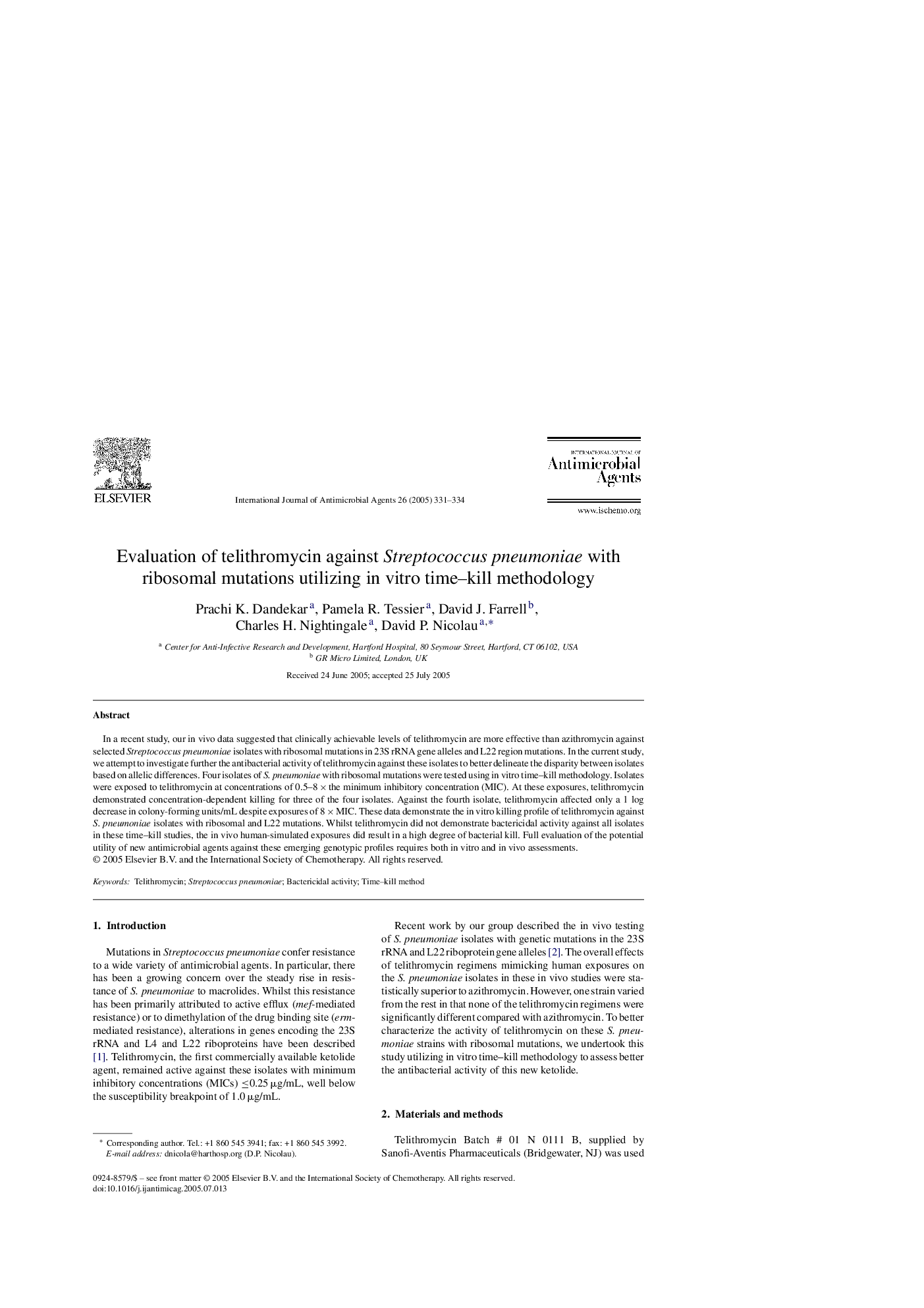| Article ID | Journal | Published Year | Pages | File Type |
|---|---|---|---|---|
| 10027733 | International Journal of Antimicrobial Agents | 2005 | 4 Pages |
Abstract
In a recent study, our in vivo data suggested that clinically achievable levels of telithromycin are more effective than azithromycin against selected Streptococcus pneumoniae isolates with ribosomal mutations in 23S rRNA gene alleles and L22 region mutations. In the current study, we attempt to investigate further the antibacterial activity of telithromycin against these isolates to better delineate the disparity between isolates based on allelic differences. Four isolates of S. pneumoniae with ribosomal mutations were tested using in vitro time-kill methodology. Isolates were exposed to telithromycin at concentrations of 0.5-8Â ÃÂ the minimum inhibitory concentration (MIC). At these exposures, telithromycin demonstrated concentration-dependent killing for three of the four isolates. Against the fourth isolate, telithromycin affected only a 1 log decrease in colony-forming units/mL despite exposures of 8Â ÃÂ MIC. These data demonstrate the in vitro killing profile of telithromycin against S. pneumoniae isolates with ribosomal and L22 mutations. Whilst telithromycin did not demonstrate bactericidal activity against all isolates in these time-kill studies, the in vivo human-simulated exposures did result in a high degree of bacterial kill. Full evaluation of the potential utility of new antimicrobial agents against these emerging genotypic profiles requires both in vitro and in vivo assessments.
Related Topics
Life Sciences
Immunology and Microbiology
Applied Microbiology and Biotechnology
Authors
Prachi K. Dandekar, Pamela R. Tessier, David J. Farrell, Charles H. Nightingale, David P. Nicolau,
